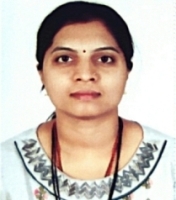BOH (Bad Obstetric History) – An Ayurvedic Perspective
DOI:
https://doi.org/10.47070/ayushdhara.v8i3.757Keywords:
BOH, Putraghni Yonivyapad, Ayurveda, Ayurvedic management.Abstract
Pregnancy is a crucial event in life that requires considerable physiological & psychological adjustment by the mother; by accepting which she starts an incredible journey of life. Rather the pregnancy loss is a frustrating & challenging problem for the couple as well as for obstetrician. It is associated with guilt, embarrassment and depressive states especially in cases where patient conceives with added concerns of primary or secondary infertility due to various causes. Such patient presents with bad obstetric history, this needs detailed consultation & proper line of treatment.
In Ayurveda Putraghni Yonivyapad is described where repeated abortions or the early neonatal deaths are explained which are due to Artava Dosha, Rakta Dosha, Raktastrava and Raktakshaya. When we came across with descriptions given by different Acharyas we come to know that these all points came under the Bad Obstetric History described in modern science. As we all know that Ayurveda is a Science of life the management of Sadhya Vyadhi is explained in it, by following line of treatment through Ayurveda we can minimize the adverse outcome in BOH.
Downloads

Downloads
Published
Issue
Section
License
Copyright (c) 2021 AYUSHDHARA

This work is licensed under a Creative Commons Attribution-NonCommercial-ShareAlike 4.0 International License.


